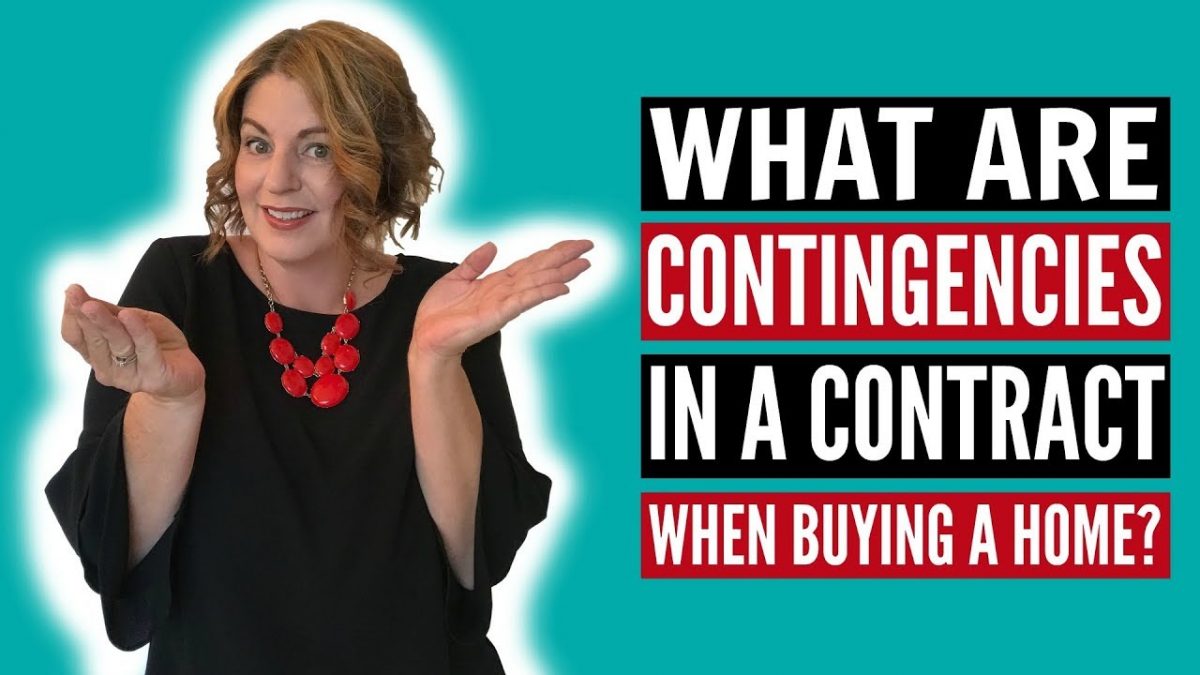
Why Buy a New Home Instead of a Resale
July 10, 2019
What is Earnest Money Deposit When Buying a Home
July 10, 2019What are Contingencies in a Contract When Buying a Home


What are Contingencies in a Contract When Buying a Home?
So what are contingencies in a contract when buying a home? Great question.
Purchasing a home is one of the largest financial commitments you’ll ever make, and it’s understandable to want to protect your investment throughout the home buying process.
As a buyer, you’ll eventually reach a point where you have to make an offer on a house. The offer will be presented in the form of a purchase agreement, also known as a contract. This is one of the most important documents you will encounter during the home buying process.
So, you need to understand everything that goes into it, and that includes contingencies. Here are some of the most common contingencies in a purchase agreement:
Financing Contingency
This contingency ensures you’re not on the hook if something goes awry with your loan. If you’re unable to secure a mortgage or the terms and conditions change significantly during the contingency period, you can back out without any penalties.
Home Inspection Contingency
This contingency gives you a set time frame to have a professional home inspection done on the property. Should issues be found, you can negotiate with the seller to make repairs or adjust the sales price to account for the home’s condition.
Appraisal Contingency
This contingency protects you if an appraisal comes in below the sales priceWhen this happens, it’s up to you to make up the difference, either by securing additional financing, paying it out of pocket or renegotiating the deal. If none of these methods work, the contingency allows you to back out without losing your earnest money.
Home Sale Contingency
This contingency is crucial if you’re selling an existing home while buying a new one. Essentially, it says your purchase relies on your ability to sell your current home by a specific date. If you haven’t accepted an offer in that period, you can withdraw and get your earnest money back.
Occupancy Contingency
This contingency protects you, should you need to move into your new home by a specific time. It gives you possession of the home on the date you specify.
Real estate contingencies are a double-edged sword for home buyers. They give you a legal way to back out of a transaction, if some unforeseen event occurs. That’s a good thing. But they can also make your offer less appealing to the seller, especially in a hot market where multiple offers are common. That’s the downside. Market awareness should be your guide.
Bottom line:
It’s wise to use certain types of purchase agreement contingencies when buying a house. They prevent you from getting “trapped” into buying a home you either don’t want or can’t afford.
But you have to exercise good judgement when including these clauses in your contract. One contingency too many, and the seller might reject your offer.
What are the Steps to the Home Buying Process? Find out here!
Subscribe to our YouTube Channel: http://bit.ly/YouTubeOHare


